Why would they not tell you that your daughter needed a specialist? Just telling you "It's for the best" makes no sense 😲
My Kid Frightened Her Therapist, and the Doctor Revealed an Awful Truth
A reader recently sent us a letter detailing the ongoing drama surrounding her 6-year-old daughter, Lily. In her message, she described how Lily’s behavior led to the abrupt end of her therapy sessions and the unsettling discoveries that followed.
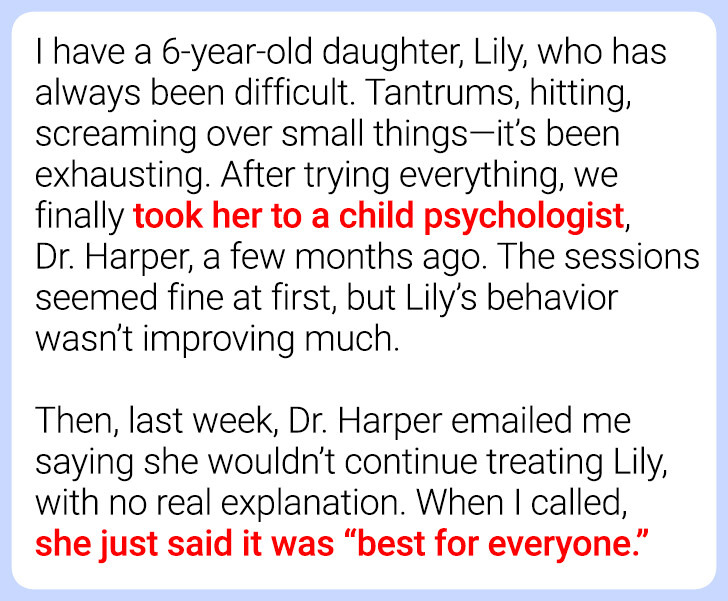
The next day, Lily’s school reported another meltdown where she screamed at a teacher, prompting the counselor to recommend more intensive therapy. Concerned, her parent contacted Lily’s former preschool teacher, Mrs. Morgan, who revealed Lily had talked about an imaginary friend named Emma. That night, the parent discovered a crayon drawing under Lily’s bed showing two girls—one labeled Lily, the other “Emma,” with Emma’s face crossed out in red scribbles.
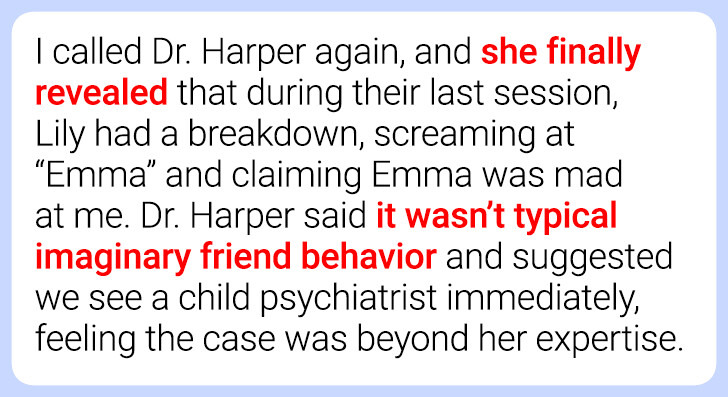
Now, the parent is terrified, wondering if this is just a phase or something more serious. With a psychiatrist appointment coming up, they feel lost and are seeking advice from others who might have faced similar situations.
Emotional and behavioral signs of mental health problems in children.
Here are signs of mental health issues in children. If these symptoms persist for more than a few weeks, it's crucial to discuss them with your child and seek professional help.
- Loss of interest in previously enjoyed activities
- Frequent tantrums or aggressive behavior
- Persistent sadness or excessive crying
- Excessive worry or fear
- Avoidance of social situations or intense separation anxiety
- Regression to earlier behaviors, like thumb-sucking or bed-wetting
- Inability to focus, restlessness, or hyperactivity
Physical signs
- Trouble sleeping or excessive sleep
- Difficulty getting up or changes in eating habits
- Significant weight loss or gain
- Unexplained physical pains, such as headaches or stomachaches
School and social signs
- Decline in academic performance
- Difficulty socializing or reluctance to go to school
- Withdrawal from friends and activities
What to do in this situation.
If your child’s mood or behavior changes persist for more than a few weeks and are causing distress, affecting relationships, or hindering daily activities, it’s crucial to seek professional help promptly.
Consider these support options:
- Your child’s preschool or school teacher, or a school counselor
- Your child’s GP or pediatrician
- A psychologist specializing in children and families
- A mental health social worker
- Your local children’s health or community health center
- Local mental health services
We'd love to hear from our readers about how they successfully supported their children through challenging situations—please share your experiences and insights in the comments.
Comments
Your daughter is either schizophrenic or she's a sensitive. She might be able to (plz don't laugh) see things some can't. My oldest was like this. Turns out she is a sensitive one top of autistic. Some "imaginary friends" aren't so imaginary unfortunately.
Related Reads
I Left My Wife on Our Wedding Night Because of Her Sick Surprise

I Told My MIL She’s Not Allowed to Babysit My Child Anymore
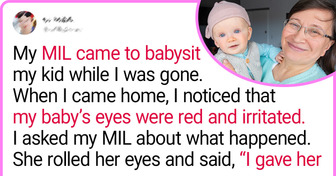
I Found My Deceased MIL’s Diary and Learned a Bitter Family Secret, I’m Devastated
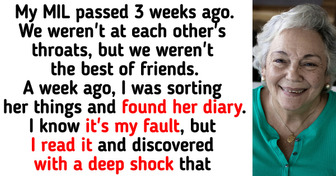
15 True Stories That Made Us Say, “The World Has Real Angels in It”
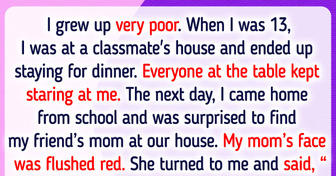
12 Wild Stories That Prove Cheating Isn’t For the Faint-Hearted
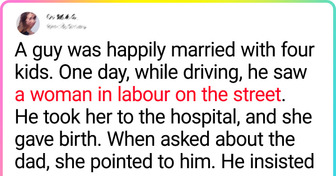
My In-Laws Humiliated Me in Front of the Whole Family—I Refuse to Swallow That
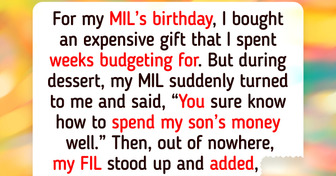
10 Brave Women Open Up About Their Most Cringe-Worthy Moments
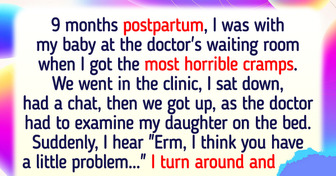
10 Funny Moments When People Bumped Into Surprising Situations
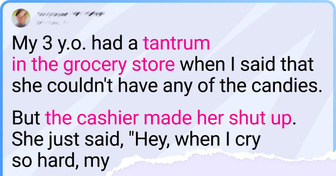
My Husband Demanded a Paternity Test, and the Results Left Us Both in Shock

12 Stories That Prove Kindness Is Such a Rare Gift
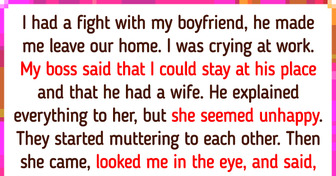
I Installed a Secret Camera After My MIL Insisted on Having Our Key

My Ex-Husband Spent the Money Saved for Our Son on His Stepdaughter

